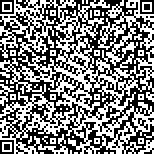| 摘要: |
| 目的 农业生产源头关乎到农产品安全,当前学界就农产品“一家两制”差别化生产相关研究已产生较大学术影响,影响社会舆论对食品安全的判断。方法 文章以19个村庄的调研为基础,检视“一家两制”概念及其理论预设后发现,农产品“一家两制”的差别化生产并非普遍而只是个别现象,已有研究存在证据不足和社会误读等问题。结果 (1)自留地因素是农产品“一家两制”差别化生产的主要证据,但该文认为自留地作为特殊的历史产物不应被纳入农产品差别化生产研究范畴。(2)农产品有差别的生产方式并不完全是农户有意为之的行为,也有无意之举或农作习惯等因素。(3)多元理性的逻辑模型与当前农业生产现实并不契合,生存理性、经济理性和社会理性均难以有效解释农户农业生产行为。(4)“一家两制”理论存在消极的重建食品安全信任、对农户的道德谴责和加剧消费者不信任的弊端。结论 已有“一家两制”概念及其理论研究存在解释力和契合度不足等问题。食品安全治理需从多元主体出发,而不应单纯将农产品安全问题归因于小农户。 |
| 关键词: “一家两制” 差别化生产 误读 农作习惯 |
| DOI:10.7621/cjarrp.1005-9121.20210916 |
| 分类号:C915 |
| 基金项目:山西农业大学哲学社会科学课题“产消互动视角下消费者食品安全信任研究”(2018YJ02) |
|
| ANALYSIS OF THE THEORETICAL SEMINAR ON THE CONCEPT OF "ONE FAMILY, TWO SYSTEMS" DIFFERENTIATED PRODUCTION |
|
Wang Zhen1, Yan Yanhua2,3
|
|
1.College of Public Administration, Shanxi Agricultural University, Jinzhong 030801, Shanxi, China;2.Institute of Agri-Food Standardization, China National Institute of Standardization, Beijing 100088, China;3.School of Public Administration, Tsinghua University, Beijing 100088, China
|
| Abstract: |
| The source of agricultural production is related to the safety of agricultural products, and the current research on the differential production of agricultural products under the "one family, two systems" system has had a significant academic impact, even affecting the judgment of public opinion on food safety. This research examined the concept of "one family, two systems" and its theoretical presuppositions based on a study of 19 villages, and found that differential production of agricultural products under the "one family, two systems" system was not universal, but only the rare phenomenon, and that there was insufficient evidence and social misinterpretation in existing studies. On the basis of that, the academic concept of "one family, two systems" and its theoretical presuppositions were challenged. The results were indicated as follows. (1) The self-occupied land was the main evidence for differential production of agricultural products in a two-family system, but the research argued that self-occupied land as a special historical production form should not be included in the study of differential production of agricultural products. (2) The differential production of agricultural products was not entirely the intentional behavior of farmers, but also the unintentional behavior or farming habits and other factors. (3) The logical model of multiple rationality did not fit with the current agricultural production reality, and it was difficult to explain the agricultural production behavior of farmers effectively by survival rationality, economic rationality and social rationality. (4) The two-family theory had the disadvantages of negatively rebuilding trust in food safety, moral condemnation of farmers, and increasing consumer mistrust. To conclude, the existing concept of "one family, two systems" and its theoretical studies have problems of insufficient explanatory power and fit. Food safety governance needs to be based on a multiplicity of actors, rather than attributing agricultural safety problems to small farmers alone. |
| Key words: one family, two systems differentiated production misconception farming habits |

